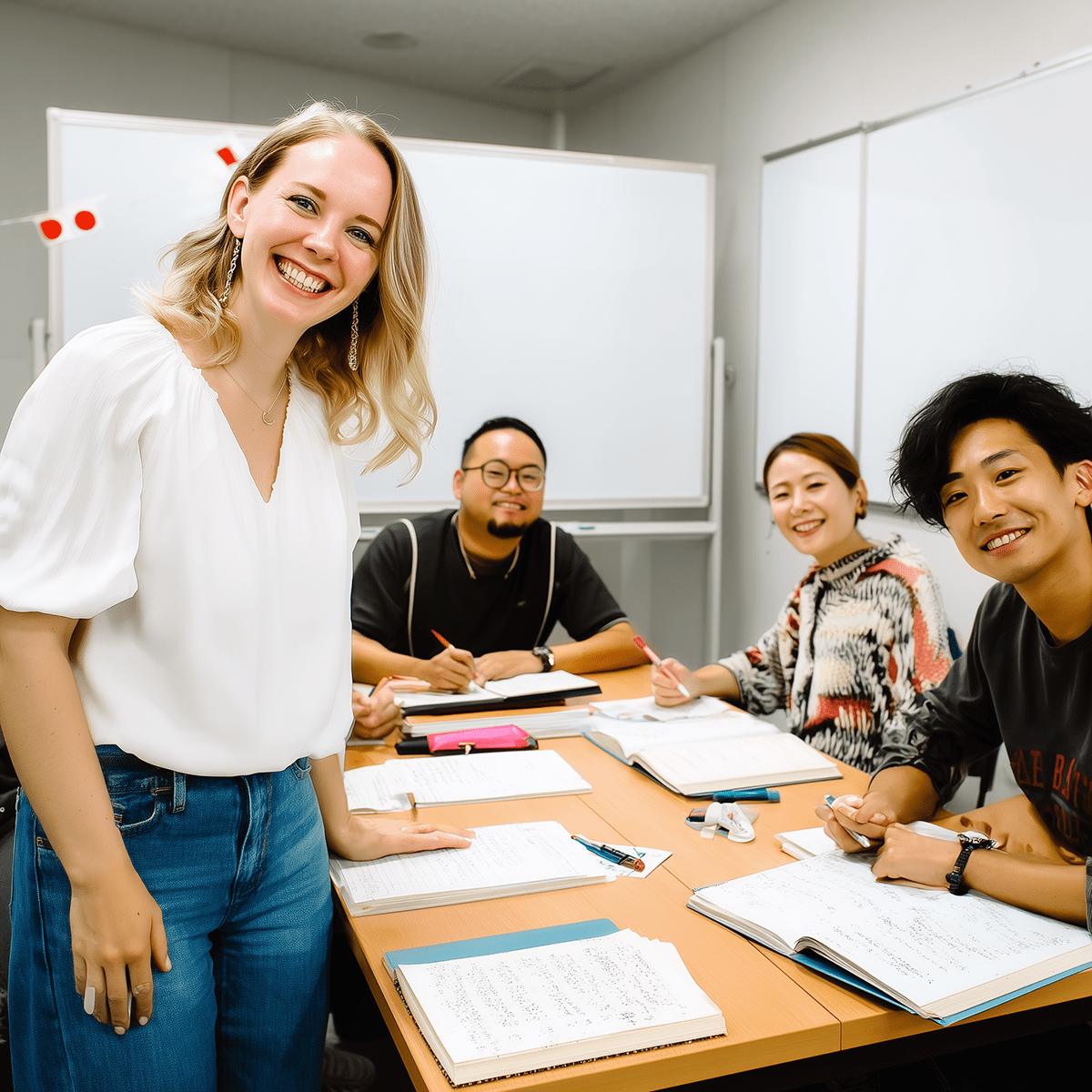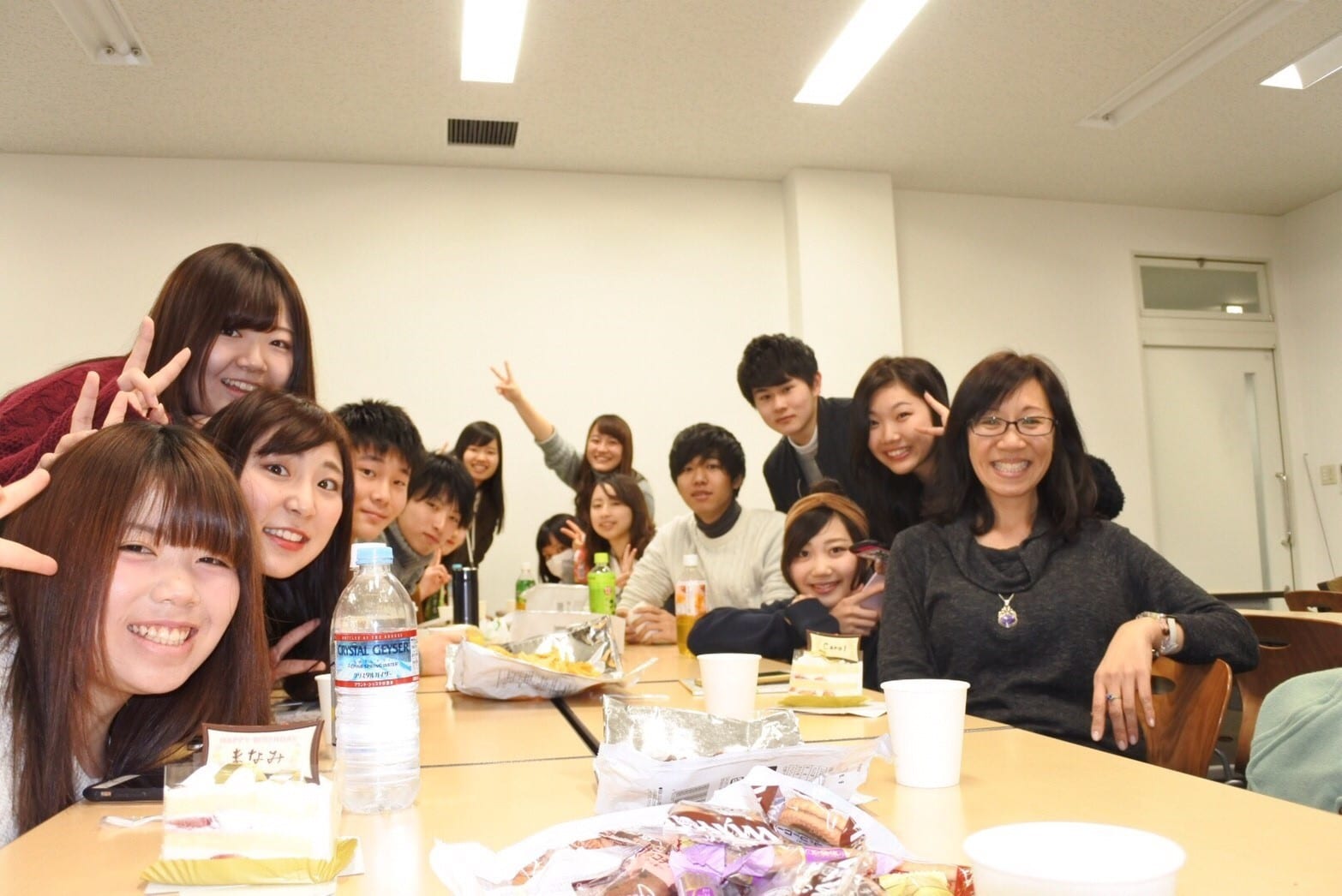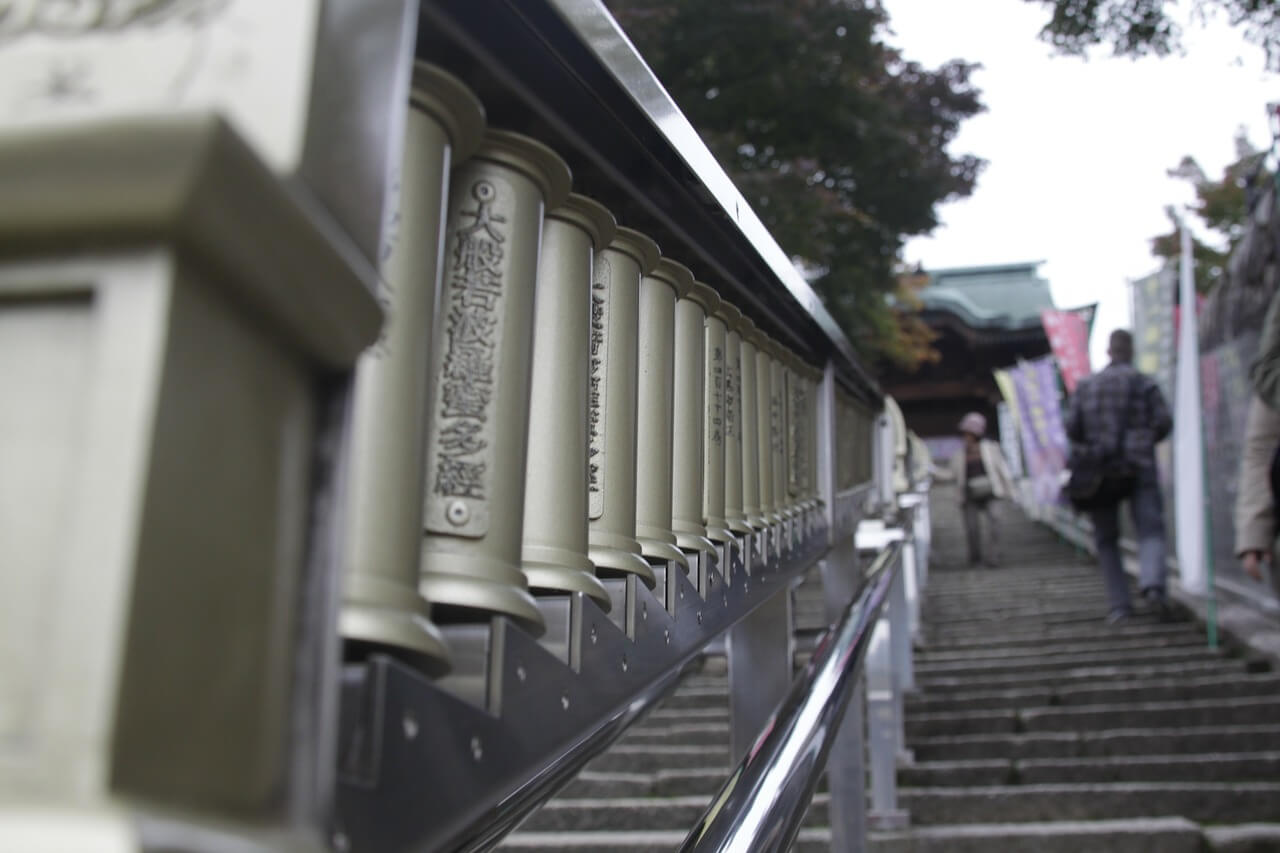If you are planning to teach English in Japan, you will likely choose between an ALT Teacher or an English Conversation Teacher post. In terms of lifestyle, there are many differences you need to consider before applying for an English teaching job in Japan.
About the author: Shelley Yue completed the 250-hour TESOL Diploma program with OnTESOL and has more than 3 years working as an ESL teacher in Japan with experience in English Conversation and ALT.
Recommended for K-12 ESL Teaching Positions in Japan: 168-hour Hybrid TEFL Certificate ($400 OFF)
School Hours
ALT Teachers
You usually arrive at school by 8 AM. In 99% of the cases, you will have your own desk within the office for you to plan your lessons. Greeting the staff with a simple “ohayo” or good morning is recommended.
The typical day of an Assistant Language Teacher (ALT) starts early with a morning staff meeting. For the most part, you can just sit quietly and listen. Then the homeroom teachers will be off to their classes. They will usually drop off a schedule of your classes for the day on your desk if they didn’t send you one by email earlier that week.
There are usually a minimum of two to three and a maximum of five classes a day. If it’s a special day like Christmas or Halloween, elementary schools usually ask you to work more hours. The day ends by 5pm or 6pm, depending on activities.
English Conversation Teachers
A typical day of an English Conversation Teacher starts off pretty slowly. Most conversational schools don’t open until noon and you may or may not start work until the afternoon. Always greet your manager and co-workers as you step into the office to double-check your timetable for any last-minute changes.
The day generally ends around 9pm; a little bit earlier on Saturdays because classes start a few hours earlier. There will just be a bit of cleaning to do around the school and you are usually out of the office in about half an hour or so after you have finished your last class. A late dinner and you would have finished a day of work in Japan!
Almost all conversational schools open from Monday to Saturday so you will either be working a Monday to Friday schedule or the more likely Tuesday to Saturday schedule. A typical Monday to Friday work schedule consists of 5 to 7 classes. Evenings are usually where the bulk of your classes take place because that’s when the students get off work and/or school. Usually, Saturdays are busy and jam-packed with classes due for the same reason. For most schools, there will be a meeting once a week with the teachers and manager of your school to discuss the classes you might be having trouble with as well as any new perspective students that your manager might want you to talk with more.
Interacting with Students
ALT Teachers
Lunches will be served and eaten in the classrooms with the students. Lunches are pretty healthy and very Japanese. There is usually rice or noodles with a different array of dishes with soup and milk. Your company will almost require you to pay and eat with the kids as that is part of the job of spending time with the students.
The meals are around 200YEN (around 2 dollars) so it’s actually a pretty good deal. If you aren’t into Japanese food all that much you can choose to baggy the lunch. Something that I did was that I would swap something such as natto (fermented soybeans) for something a particular student doesn’t like that I would want.
This is usually a good way to get in good with the students so that you can become more involved during the lunch hours. This move is especially helpful when you haven’t learned a great deal of Japanese to communicate with them.
English Conversation Teachers
For Conversational classes, there is a bit of time between classes, usually ten minutes. Since the classes are fairly easy to prepare and would have been prepared the week before, those ten minutes are spent conversing with the students in the lounge or waiting area of your school. Some light chatting in the hallway are encouraged to get the students talking in English and relax around you before class starts. This is actually an excellent time to get to know your students because these students usually end up being close friends for their time in Japan. This is a time for friendly chat and an opportunity to ask them about their day or ask them to suggest someplace fun for you to hang out for the weekend.
Find TEFL jobs worldwide on the OnTESOL job board
Extra Tasks
ALT Teachers
The truly fun part of being an ALT is hanging out with the kids after class. There will be cleaning to do be done after classes and, unlike schools in Canada or America, the cleaning is all done by the students and teachers.
I recommend just carrying a cloth around and wiping while saying hi to the kids. After classes are done, there are club activities and you can pick one you are interested in and join in with the kids. If you want to try everything as I did, you can walk around after school and see what the kids are doing and join in if you are interested.
It’s a lot of fun and a great way to get to know your students outside of class. Aside from the normal days, you will spend a large amount of time participating in school-wide events such as the school festivals (junior high school and high school), sports day (elementary school), and of course the opening and closing ceremony of the school year.
Each school in different areas have their own events so you are always in for a nice surprise.
English Conversation Teachers
One of the things that come as a bit of a shock to most newcomers is the money part of this job. The conversational school business is… well, a business. That being said, from time to time, there will be the selling of extra material to the students for the teachers to do in order to meet a particular profit goal of the company. Most of us who come to work in Japan come with the mindset of being a teacher. This is NOT always the case in a conversational school. The goals are that the teachers teach and motivate our students in order to keep the company afloat. A bit harsh but don’t expect any life-changing, GTO style (if you are into anime) classes.
Recommended TESOL Certification for Japan: 120-hour TESOL Certificate course with additional 20-hour TEYL certification course. Get certified to teach English in Japan to adults and young learners. Get free job assistance in Japan when you complete your TESOL course with OnTESOL.






Can I get some job adverts for teaching English in Japan for 2 -3 months so I can get the hang of it. I have recently completed a Cert 1V Tesol course in Australia . I have a Bachelors degree in Commerce from Mumbai and I am living in Australia since 18 years .
Contracts in Japan are generally for 12 months. We don’t send job adverts, but you can sign up to the job board https://tefljobs.ontesol.com/